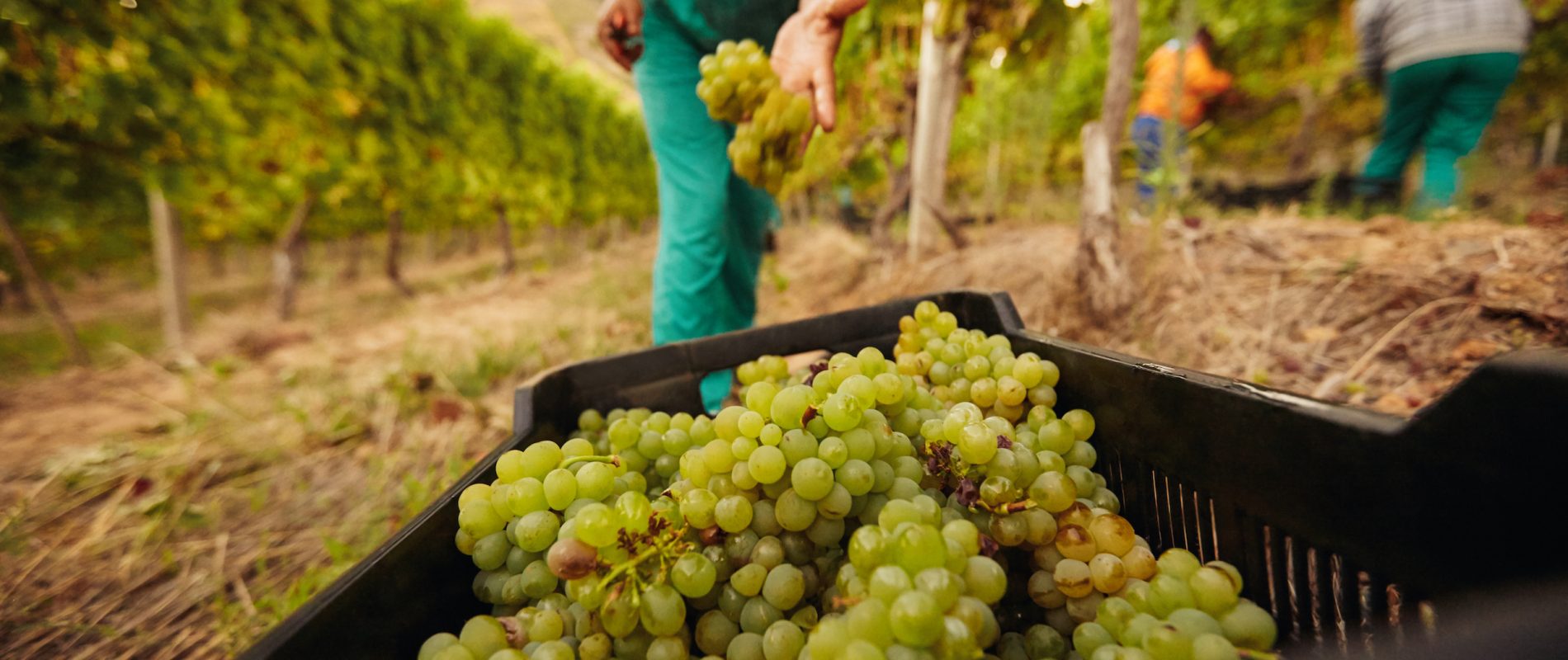Typical fruit picking horror stories and how to avoid these situations
Farm exploitation issues
Every year, Australian and international media report foreign worker and backpacker abuse on farms. The most common issue is when workers are paid well below minimum wage and exploited.
The industry is also riddled with advance-fee scams. For instance, you could be asked to pay a deposit to secure a job or accommodation, or pay for tools or a police certificate before you even get the job. You will then arrive to find the job never existed, and you won’t get your deposit back.
In the most extreme cases, employers take advantage of a casual, seasonal and vulnerable workforce. Stories of passport confiscation, horrid living conditions, harassment, sexual abuse and murder also make headlines—and still, they are sadly underreported.
A few towns are known for worker exploitation and have a terrible reputation, like Bundaberg (QLD) and Mildura (NSW).
You may want to read some of the following articles (warning: some contain details of abuse):
- $30,000 repaid to migrant farm workers highlights need to end exploitation
- Farmers fined for failing to comply with workplace laws as new minimum wage takes effect
- Horror on the farm: How visa systems led three backpackers to a predator
- The dangers of farm work in Australia
- Working for $9 a Day
- The Sleaze and Danger of Working 88 Days on an Australian Farm
- Death in the sun: Australia’s 88-day law leaves backpackers exploited and exposed
Many of the victims are backpackers desperate to complete their specified work for future WHV applications. Some of them are so desperate, they are willing to work well below minimum wage, but beware—your visa application could be rejected because you didn’t earn enough. There are backpackers who have been denied a second Working Holiday Visa because the Australian government assessed their pay as too low for the hours they worked.
If you think you’re being exploited, you can get free legal help from the Fair Work Ombudsman (FWO), including information and advice about your rights. For instance, horticulture industry workers can review info on minimum wage, piece rate, tax and superannuation, etc.
You can also contact the FWO directly to report an employer anonymously. Complaints are always investigated; you’re not wasting your time!
Even if you’re ready to move on or you’ve already left, you should still report issues you experience, as it will help future backpackers who are dealing with your former abusive employer. Share this info with other foreign workers who might not be aware the FWO exists to help them.
Tips for a positive fruit picking experience
1. Be careful when you’re job hunting
- If the job offer is too good to be true, it’s most likely a scam. Watch out for potential employers who promise short workdays, easy tasks and plenty of money.
- Avoid accepting job offers from touts who hang out in bus stations and airports. Don’t give money to anyone who claims you’ll get free accommodation and transportation once you accept the job.
- Don’t reply to an ad when the employer only provides a first name and a phone number. Reputable employers use a company name and willingly offer more information.
- Don’t waste your time if you have already seen bad reviews for a prospective employer. Cut your losses if your employer stops paying you, sets the bar way too high, etc.
- Know who you’re working for. You can ask your employer for their ABN and for information about your contract (type and length of employment, etc.).
2. Don’t wait until you’ve run out of funds or time to look for a job
Don’t spend all your travel funds and assume you can just head to a fruit-picking region, immediately find a job with room and board, and save money. This is exactly how backpackers find themselves exploited—a desperate job seeker who is out of money is more likely to accept terrible working conditions.
If you still have enough savings to survive while you start looking for the right fruit-picking job, you can be selective and wait for the perfect opportunity. Manage your money wisely and make sure to go job hunting before you actually need to.
Similarly, many backpackers leave it to the last minute to complete their 88/179 days, and feel they cannot leave bad working conditions because they don’t have time to find another type of specified work. It always takes longer than the given number of days to complete; think about all the days you might not actually be able to work due to bad weather conditions! Give yourself plenty of time to complete your specified work, so that you are free to leave if you end up in a bad situation.
3. Know what you should be paid
Consult chapter 5 to learn the minimum hourly rate for a fruit picker.
Pieceworkers must make sure the agreed pay rate allows the average competent employee to earn at least 15% (or 20% if working in the wine industry) more than the minimum wage.
Don’t forget that the piecework agreement between the employer and the individual employee must be in writing and signed by the employer and the employee. If you don’t have a written agreement, you must be paid hourly.
4. Don’t accept a very low pay rate
Some backpackers are willing to accept outrageous pay rates in order to complete their farm work. We’ve even heard of job seekers paying employers in order to get a fruit picking job!
Don’t. Just don’t. You’re not doing anyone a favour. First, you’re putting other backpackers at risk—if you accept this low pay, employers will get used to disregarding the minimum wage, fair pay rates and the law. This is especially dangerous for local farm workers who simply can’t accept these kinds of working conditions—it’s their full-time job, after all; they can’t afford to work for free! Second, your second or third WHV application could be denied if you didn’t earn enough.
5. Keep your own work records
Keep track (on paper or digitally) of your work schedule, hours, place of employment, tasks, etc. If you’re a pieceworker, write down the number of bins/baskets filled (or other performance data).
Once you get your pay cheque, make sure the hours and rates paid align with your own records. Check your pay slips carefully as well! You will need to show these as evidence when applying for your next WHV, so make sure everything is done by the book and confirms the right amount of hours and wages.
6. Don’t leave town without your final pay cheque
Some shady employers are very reluctant to give employees their final payment when they leave—you’ll hear all kinds of excuses. Keep in mind that once you leave town, it will be even harder to get your money back. It’s best to deal with the issue in person while you’re still around.
Stay safe
If you meet the employer from hell, remember that:
- It is illegal for an employer to keep an employee’s passport. Passport confiscation is a big deal. You have every right to go to the police and get in touch with your embassy/consulate.
- Sexual harassment in the workplace (i.e. any form of unwelcome sexual behaviour that’s offensive, humiliating or intimidating) is illegal. Threats, abuse and general harassment can be an offence. Don’t hesitate to contact the police.
In case of major issues or if you don’t feel safe, contact the police and the FWO.
Enjoy your WHV experience
Despite these warnings and worst-case scenarios, try to relax and be prepared for—but don’t expect—the worst! Remember that farmers do need employees like you. It’s good to be aware that terrible work conditions are not a myth in the industry, but you can also meet great Australian employers who won’t take advantage of you.
Final tips for completing your farm work without stress
If you immediately fall in love with Australia and know you want to complete specified work, don’t wait until the end of your first 12 months to complete your 88 days. Try to meet the requirement as early as possible; this way, you won’t feel forced to accept any job for any employer towards the end of your stay.
It pays to plan ahead. Think about it—the regular harvest season could be compromised because of adverse weather conditions (drought or floods), you may have a hard time finding an acceptable employer, you may be sick and unable to work for a week… anything can happen!
Complete your 88 days early and enjoy the experience instead of stressing out about meeting the requirement.
And if you can’t—or don’t want to!—complete specified work and stay in Australia for another year, that’s totally fine. Maybe you want to check out another WHV; the world is your oyster!












 Français
Français English
English




(2) Comments
Please when it’s time for the application, fruit picking, let me know
Hi, have you read chapter 8?
{{like.username}}
Loading...
Load more